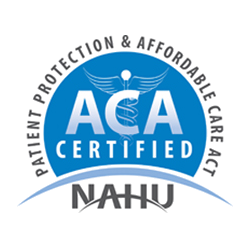
For someone who lives all or part of their life in an RV, finding good health insurance can be a challenge. RVers have unique requirements. Whether you are full time, extended time, or part time, you have needs and circumstances that a standard insurance agent or broker simply does not understand.
For starters, you take your home with you wherever you go. This can make it difficult to receive crucial and timely correspondence, find and maintain a primary care relationship, and fill and obtain prescription drugs. Frequently crossing state lines adds another layer that many policies are unable to address. Most insurance agents are simply not equipped to address these special needs, and run when they hear the word Domicile.
Our Agents Are Real RVers
That’s where RVer Insurance comes in. Our agents specialize in matching you, the RVer, with plans that make sense and work for you. Most of these agents are full time RVers themselves, so they not only understand your needs, they live it. These friendly agents can help walk you through your options to get great health insurance while you’re out on the road, enjoying life in your RV.
When it comes to health insurance for RVers, the RV Insurance Exchange sets the standard. We’ll help you find the best health insurance for full time RVers, part time RVers, and everything in between. Get a free quote today.
Start your free health insurance quote
How to select a health insurance plan
The first decision you have to make when finding the perfect health plan is what is most important:
Low Monthly Premium Payment
VERSUS
Better Benefits & Protection
These two factors generally have an inverse relationship, as illustrated by the following chart.
All information shown here is fictional and just serves as an example to help you decide what’s most important in a health plan.
Affordable Care Act Coverage
(ACA, aka ‘Obamacare’)
Pro
- The pros of having an ACA plan are that these plans offer very comprehensive government-regulated health insurance. Additionally, they are the only plans that are subsidy-eligible. So, if you are eligible for a subsidy then you may be able to obtain excellent coverage at a very low monthly rate.
- Additionally, this is the only option available that does not penalize for pre-existing health conditions.
Con
- The significant disadvantage of an ACA plan is that it is getting increasingly difficult to find one that will cover you outside of the state where you purchase it. Few RVers are able to obtain an ACA plan that covers them nationwide.
- Another disadvantage to this option is that without a subsidy the premiums are the highest of all the options on this page.
- The other notable disadvantage is that unless you have a Qualifying Life Event you can only enroll in these plans during Open Enrollment, which usually runs October to December.
Who it’s best for
This options is best for lower income families and individuals who have pre-existing medical conditions who generally stick around their ‘home state’. Many Florida residents choose this option.
Fixed Benefit Plans
Pro
- These plans are significantly lower priced than ACA plans. Additionally, many of them can be tailored to fit your budget. Plus, most do not have a deductible that needs to be met before you are covered.
- Another benefit to this option is that the coverage is nationwide. Generally, you can see any doctor you want to with these plans. However, you will get reduced rates on services if you use the very large nationwide network called the PHCS Network (www.multiplan.com).
- Another advantage here is that enrollment is open year-round. So you do not have to wait until Open Enrollment to enroll.
Con
- The disadvantage to any fixed benefit plans is indicated in its name–fixed benefit (sometimes called indemnity plans). This means that it pays a predetermined fixed amount for every service you have done regardless of the actual cost.
- For example, if you have a hospital stay that bills you $6500 then traditional insurance would pay a percentage of that bill (say 70%) after your annual deductible is met. Assuming your deductible is met, in this scenario $6500 x .70 = $4550; $6500 – $4550 = $1950 left for you to pay.
- Fixed benefit plans on the other hand would pay according to the plan’s payment schedule. I have one of these plans and mine pays $5000/day for hospitalization. So in this case, $6500-$5000 would leave me with a $1500 bill. Now, none of this is factoring in network discounts which would further reduce my liability. On the other hand, if this bill was $4000 instead of $6500, then I would have a $2500 payment coming to me because the plan pays its fixed benefit regardless of what the actual bill is.
- Another disadvantage of this option is that it will generally not cover pre-existing medical conditions.
Who it’s best for
Healthy families or individuals wanting nationwide low-cost coverage without having to meet a large deductible.
Short Term Medical Insurance
These plans are basically major medical health insurance plans that you can obtain for a period of time between 30 days and 3 years, after which you would have to reapply for coverage depending on your state.
Pro
- Coverage is very good and generally nationwide. Cost varies from state to state but premiums are generally lower than most ACA plans.
- You can tailor a plan to fit your needs and budget, with deductibles from $1,000 all the way to $25,000 in some states. These plans are becoming increasingly popular since the current administration lifted the 90 day limit rule on Short Term Medical that was in place for the previous 8 years.
Con
- With few exceptions, you have to medically qualify and they generally do not cover pre-existing conditions. Prescription drug coverage is not very good with Short Term Medical plans, though some are better than others.
Who it’s best for
This option is best for those who are healthy and want nationwide coverage and are okay with having to reapply (and re-qualify) for coverage at the end of their term.
Get a FREE health insurance quote from us
You can request a FREE NO OBLIGATION custom quote from us! Start now by entering your zip code below. Please use the zip code where you expect to domicile as an RVer.
Which ever option you choose rest assured that you can always contact us with your questions!
We can provide you with health insurance quotes in most states. If you qualify for a Premium Tax Credit (subsidy) then we will be able to apply that to your premiums as well!



